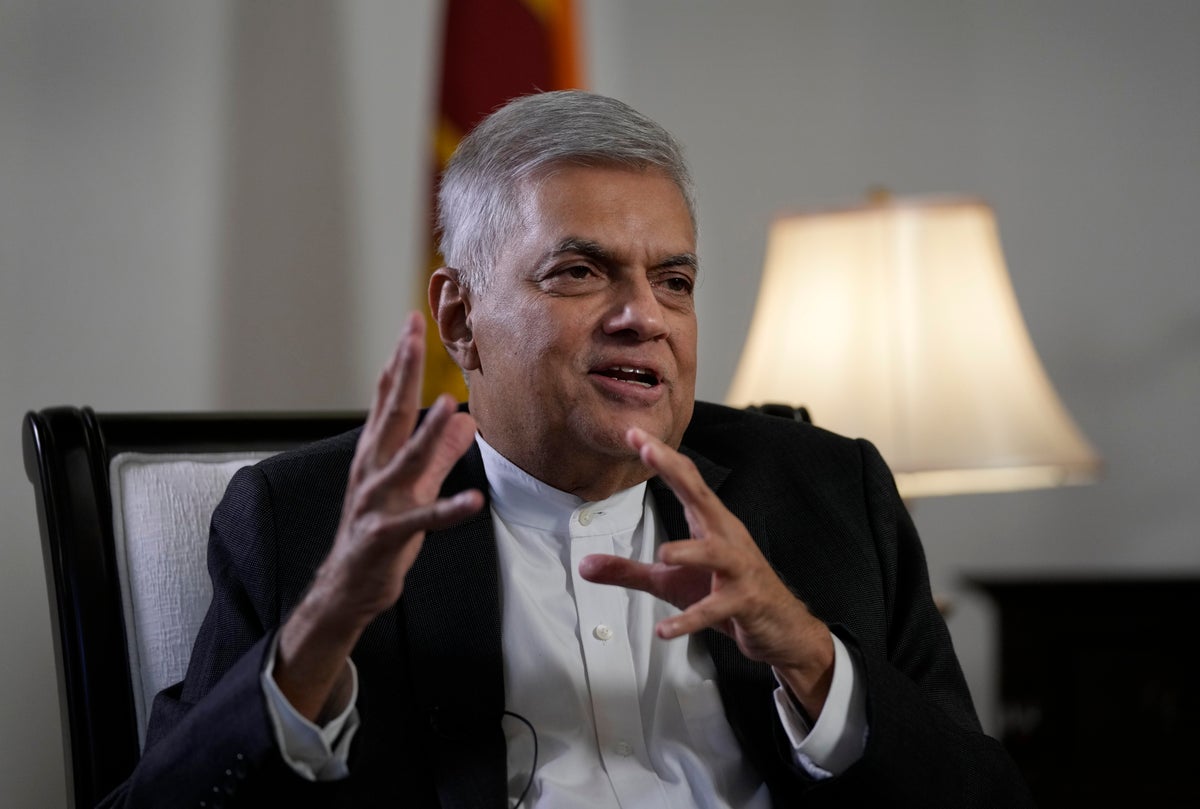
Sri Lanka’s prime minister has said his country may be forced to buy oil from Russia.
In an interview with the Associated Press, Ranil Wickremesinghe said he will look to other sources, too, but is open to buying more crude from Russia.
He also suggested he would be willing to accept more financial help from China as the government attempts to rein in Sri Lanka’s spiralling economic crisis, its worst in 70 years.
Mr Wickremesinghe said even though the crisis was Sri Lanka’s “own making”, the war in Ukraine had made it worse. He warned that food shortages in the country could last until 2024.
So far, Sri Lanka has amassed $52bn (£42bn) in foreign debt but has suspended repayment of nearly $7bn (£5.7bn) due this year, the Associated Press reported.
Just two weeks ago, the island nation bought a large shipment of Russian crude to restart its only refinery.
The prime minister also said the country was trying to get its oil and coal from the Middle East, its old suppliers.
“If we can get from any other sources, we will get from there,” he said. “Otherwise [we] may have to go to Russia again.”
One issue they are facing, Mr Wickremesinghe said, is that “there is a lot of oil going around which can be sourced back informally to Iran or to Russia”.
“Sometimes we may not know what oil we are buying. Certainly, we are looking at the Gulf as our main supply,” he added.
“We need to identify what are the projects that we need for economic recovery and take loans for those projects, whether it be from China or from others,” Mr Wickremesinghe said. “It’s a question of where do we deploy the resources?
“China has agreed to come in with the other countries to give relief to Sri Lanka, which is the first step. This means they all have to agree [on] how the cuts are to take place and in what manner they should take place.”
Speaking about the hardships citizens of the cash-strapped nation have faced because of the economic crisis, Mr Wickremesinghe said he felt terrible “both as a citizen and a prime minister”.
“I have generally been in governments where I ensured people had three meals and their income increased,” he said.
“We’ve had difficult times... but not like this. I have not seen... people without fuel, without food.”







